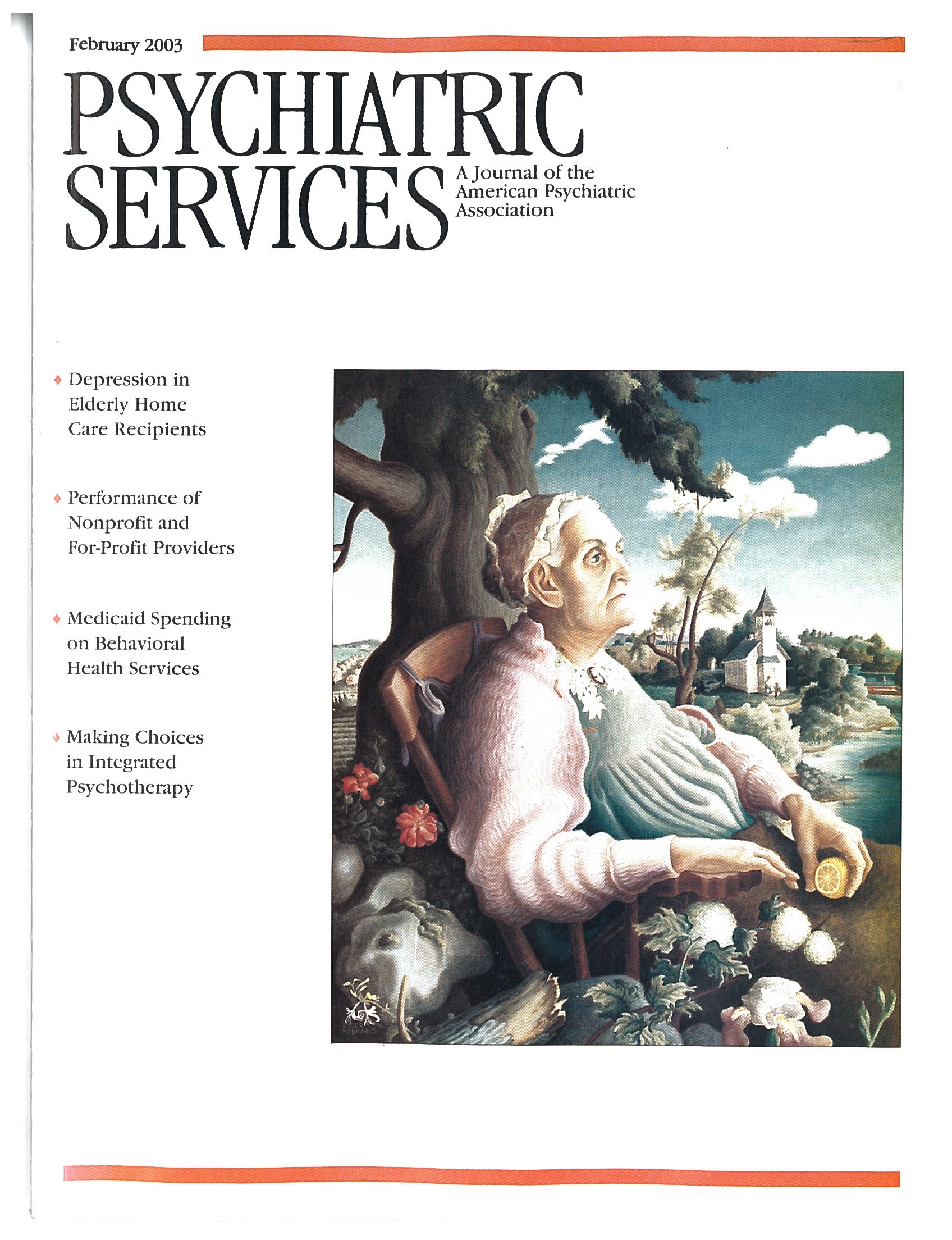To the Editor: We read with interest the Datapoints column by Humphreys and Horst (
1) in the August 2002 issue about the shift in substance abuse treatment from inpatient to outpatient services within the Department of Veterans Affairs (VA). The data prompted us to share some anecdotal observations from working on two inpatient psychiatry wards at a large VA hospital.
Although current admission criteria do not permit hospitalization of patients with substance use disorders alone, such patients nevertheless seem to constitute an increasing majority of our inpatients. Most are admitted with a dual diagnosis based on ubiquitous complaints of depression, suicidality, a potential for violence, or "hearing voices." However, in our experience, many of these complaints represent mislabeled, embellished, or feigned symptoms that often rapidly abate within the protective milieu of the ward, with sobriety, and without the need for standing psychotropic medications.
Rather than demonizing such complaints, we view them as a rational response to changes in the accessibility of psychiatric and social services to substance abusers and have come to call such behavior "iatrogenic malingering"—the willful misrepresentation of symptoms in order to gain access to more comprehensive or higher-quality care. Given the option of treatment in a noninpatient setting, in which medical and psychiatric care—and sometimes housing—are lacking and in which confrontational approaches are often used in addiction therapy, the desire to seek inpatient hospitalization as an alternative seems natural enough.
This is an age-old problem. However, we believe that the shift in substance abuse treatment to outpatient settings that started in 1995 and the denial of federal disability income to patients whose disability is due solely to a substance use disorder, as mandated in the Contract With America Advancement Act of 1996, has created a climate in which having or feigning symptoms of comorbid psychiatric disorders can, more than ever, result in tangible benefits for patients. Our observations echo data from VA studies showing an increase in substance-related inpatient admissions and an apparent increase in psychiatric comorbidity among such patients since these policy changes were implemented (
2). Our observations also support the provocative finding of an increase in the reported incidence of hallucinations at posttreatment follow-up among VA substance abuse patients (
3).
It is not our intent to discount the considerable suffering endured by patients with substance use disorders. Rather, our concern is that recent policy changes have further reduced patients' incentives to accept the notion that substance abuse may be at the core of their suffering and that treatment should thus be focused on substance abuse. Also, clinicians may be more apt to give a patient "the benefit of the doubt" and diagnose a dual disorder if doing so will increase access to psychiatric, medical, social, and financial assistance. We believe that such a decision by clinicians is a disservice to patients, because they may be needlessly stigmatized by and treated for a disorder that they don't have and put at risk of harm from side effects of medication, such as weight gain and tardive dyskinesia. Furthermore, expectations for their recovery may be lower because clinicians and others believe that they have a dual diagnosis.
Currently, we cope with this dilemma by emphasizing careful diagnostic practice and by trying to reduce the incentives for iatrogenic malingering by teaching patients that they can receive necessary and comprehensive treatment for substance use disorders alone. Ultimately, however, the solution may require an increase in the quantity and quality of outpatient and residential services provided to patients with substance use disorders.

